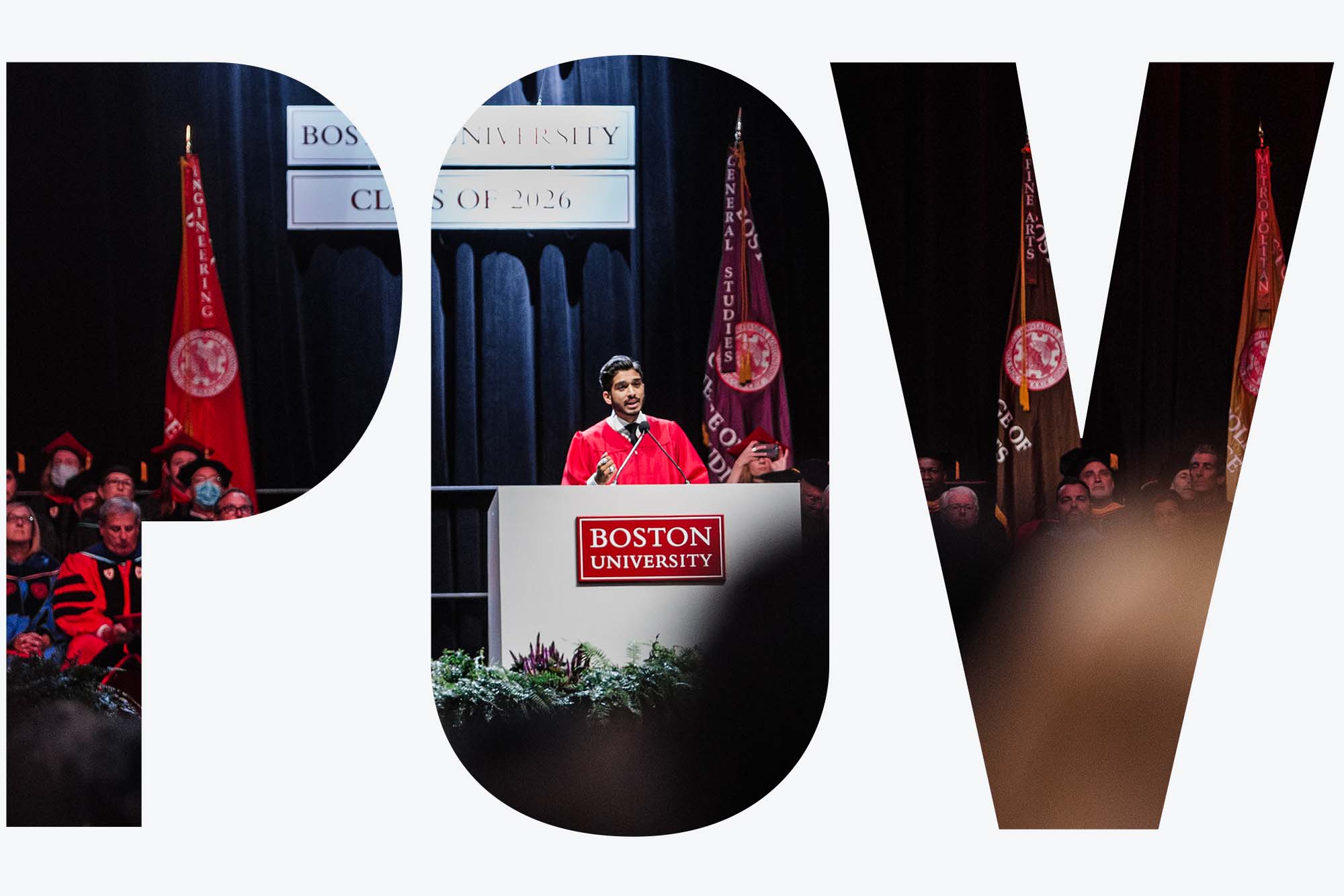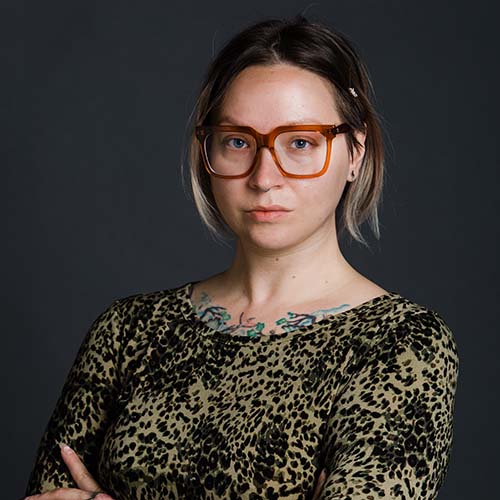POV: Student Government Can Be a Radical Force for Change
Changes will legitimize the organization and help it better fight for students across campus

POV: Student Government Can Be a Radical Force for Change
Changes will legitimize the organization and help it better fight for students across campus
Last week, I stood in front of Boston University’s matriculating Class of 2026, and called upon our community’s incoming students to be radical. While much of my speech was dedicated to urging students to seize the moment and be the change they wish to see on campus, I also discussed our University’s radical past of student activism.
Boston University Student Government, formerly known as Student Union, used to be a powerful vehicle for change, viewed by both administration and students as an effective, and at times radical, advocate for student voices. In the past few decades, the organization has become a shell of its former self, marred by administrative pushback, inefficient structural changes, and internal politics.
However, over the past few months, I and the newly elected Fight to BU administration have revived the radical fighting spirit our organization once embodied. Since taking office, my team and I have made dramatic changes to Student Government, both at structural and functional levels, to legitimize our organization and better fight for students across campus.
Expanding influence and power
For the first time in decades, Boston University Student Government is taking on the task of proposing the budget distribution of the $2.3 million Community Service Fee (CSF) on behalf of the undergraduate student body. For those who don’t know, the CSF is a fee charged to all full-time undergraduate students and used to fund student activities, events, and campus programming. After spending the summer working with John Battaglino, assistant dean and Student Activities Office director, and Jason Campbell-Foster, University interim associate provost and dean of students, I will be obligating future Student Governments, through a constitutional amendment, to provide recommendations for the CSF distribution on a yearly basis, thus allowing students to have a direct say in the distribution of a multimillion-dollar fund that we finance. After all, the CSF is students’ money, and it deserves to be controlled by those who it rightfully belongs to.
I have also democratized access to University committees, which are some of the most effective means of student advocacy at BU. These committees, made up of administrators, faculty, and students, provide integral feedback and policy proposals on a variety of important topic areas affecting our community. Rather than gatekeeping membership of these committees to Student Government leadership, as has been the case in the past, we expanded membership opportunities to the undergraduate student body through an application process, while also increasing the number of student seats on various committees. A list of these committees and their updates can be found on our website in the coming weeks.
Last, I have worked with the Campus Activities Board (CAB), a student organization that oversees the planning and execution of major events on campus, to collaboratively budget 33.25 percent of the CSF dedicated to event planning and campus programming. With this money, our events department, directed by Kiara Bennett (CAS’24), hopes to expand events and provide more student voices in major campus programming.
Cabinet initiatives
While these larger structural changes have been a major focal point of my work in Student Government over the past few months, I also want to highlight the incredible initiatives our cabinet is working on. Overseen by Navya Kotturu (CAS’24), executive vice president, our cabinet is broken up into eight departments: academic affairs, city affairs, communications, engagement, environmental affairs, events, sexual assault prevention, and social advocacy. If you are interested in joining them, please apply here.
Our social advocacy department, led by Alex Brumfield (CAS’24), has worked on a number of important progressive initiatives, including supporting the ongoing Comm Ave Starbucks strike, investigating student worker needs, and growing our organization’s relationship with the Queer Activist Collective. Kotturu and Brumfield have also worked tirelessly to improve health on campus. Both have continued the implementation of the Peer Support Program, a developing service focused on providing peer-to-peer support for students, and the planning of our second annual BU-BC blood drive competition, which is scheduled for January 23 to 26, 2023.
Our environmental affairs department, spearheaded by Delaney Foster (CAS’24), has continued to execute a major tenet of the Fight to BU platform. As a major long-term project, Student Government hopes to partner with Generation Conscious, a hygiene and health equity initiative that ensures low-income university students access to sustainable laundry detergent. We are also partnering with Students for the United Nations, a community service organization under the Boston University International Affairs Association, for the annual Charles River cleanup. This will be taking place on Sunday, September 18, from noon to 2 pm.
The newly created sexual assault prevention department, led by Aarthi Gopalan (CAS’23), has established lines of communication with prominent sexual assault prevention and survivor advocacy organizations, including SARP, 16,000 Strong, the Greek Life Sexual Assault Prevention Committee, and It’s On Us. Our city affairs department, led by Gabriela Ramirez (CAS’23), has also been busy at work, currently developing plans for a mutual aid drive with the Brazilian Women’s Group at the start of October and plans for civic engagement initiatives in collaboration with the Initiative on Cities. Last, our academic affairs department, led by Jacob Aznavoorian (CAS’25), is planning a financial aid workshop in the coming weeks and hopes to also investigate the implementation of virtual IDs.
Outreach and engagement
Our Student Government is also working to increase visibility for all students in the BU community. As a form of expanding our outreach with marginalized communities, our engagement department, led by Dora Ambroise (Sargent’24), will be hosting a cultural organization brunch on Saturday, September 17, from noon to 2 pm, with the leadership of a diverse array of cultural student organizations. This event will allow us to better understand the unique issues facing different cultural groups on campus.
In collaboration with the engagement department, my executive board, including Laney Broussard (COM’24), vice president of internal affairs, and Lauren Kong (Sargent’25), vice president of finance, will also be holding information sessions on September 11, 12, and 15, for those interested in learning more about Student Government.
Conclusion
While this POV may seem long-winded, it just scratches the surface of the passion, energy, and effort we have put in over these past few months to improve our organization. And while you may be skeptical, I can assure you that with myself and the Fight to BU team at the helm of Student Government, we will live up to the work of our predecessors and create transformative change on our campus.
So, here is my call to action. To administrators, if you want to bridge the gap between yourselves and the student body, we will fight for you. To faculty, if you want student mobilization and support behind an initiative, we will fight for you. To students, if you have an idea, initiative, or issue you feel strongly about, we will fight for you.
It’s time for the Boston University community to view their Student Government as what it’s meant to be: a radical force for change on campus.
Interested in learning how to become involved in Student Government? Attend an information session on Monday, September 12, at 7 pm, in PHO 201, or on Thursday, September 15, at 7 pm, in CAS B36.
“POV” is an opinion page that provides timely commentaries from students, faculty, and staff on a variety of issues: on-campus, local, state, national, or international. Anyone interested in submitting a piece, which should be about 700 words long, should contact John O’Rourke at orourkej@bu.edu. BU Today reserves the right to reject or edit submissions. The views expressed are solely those of the author and are not intended to represent the views of Boston University.

Comments & Discussion
Boston University moderates comments to facilitate an informed, substantive, civil conversation. Abusive, profane, self-promotional, misleading, incoherent or off-topic comments will be rejected. Moderators are staffed during regular business hours (EST) and can only accept comments written in English. Statistics or facts must include a citation or a link to the citation.